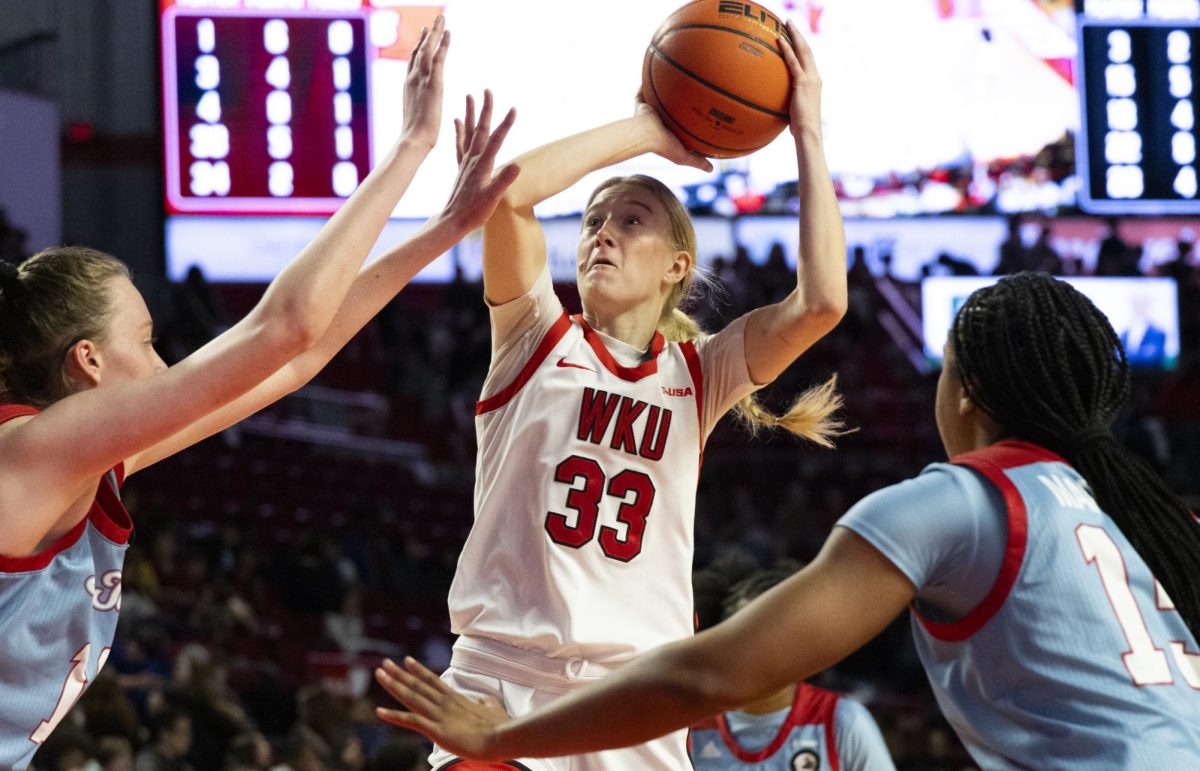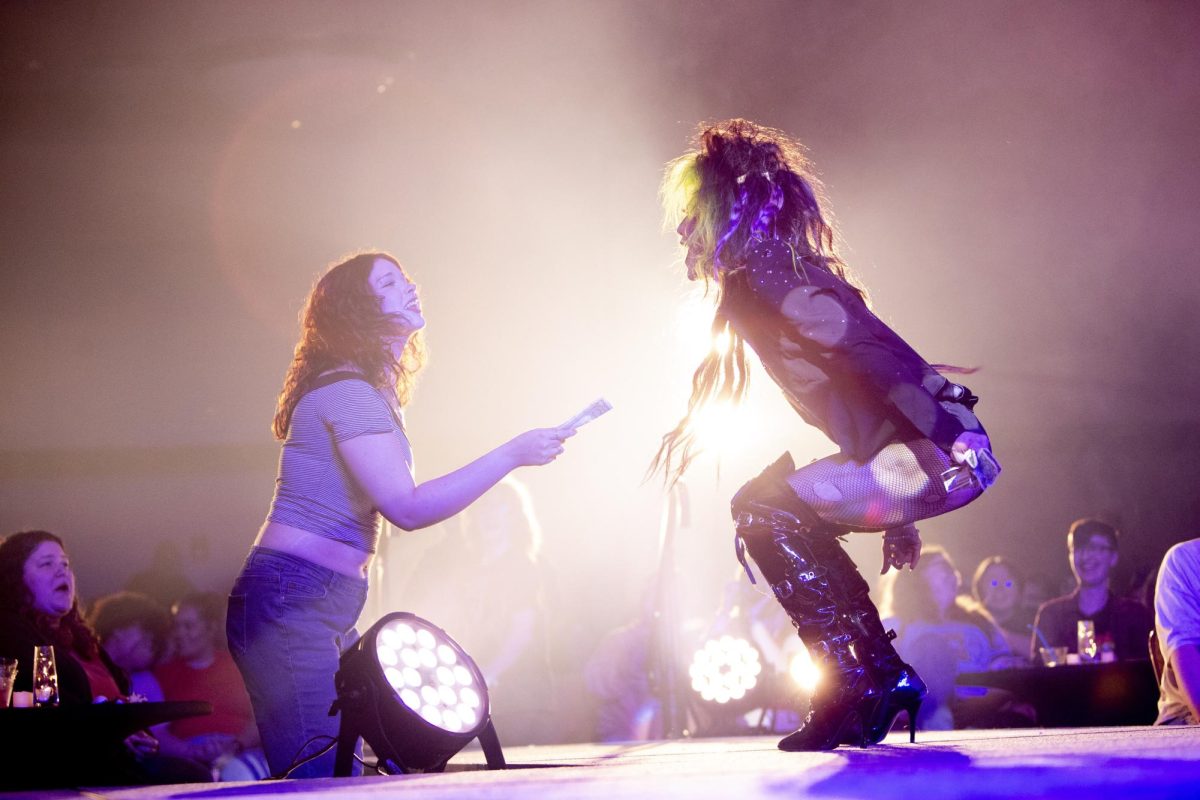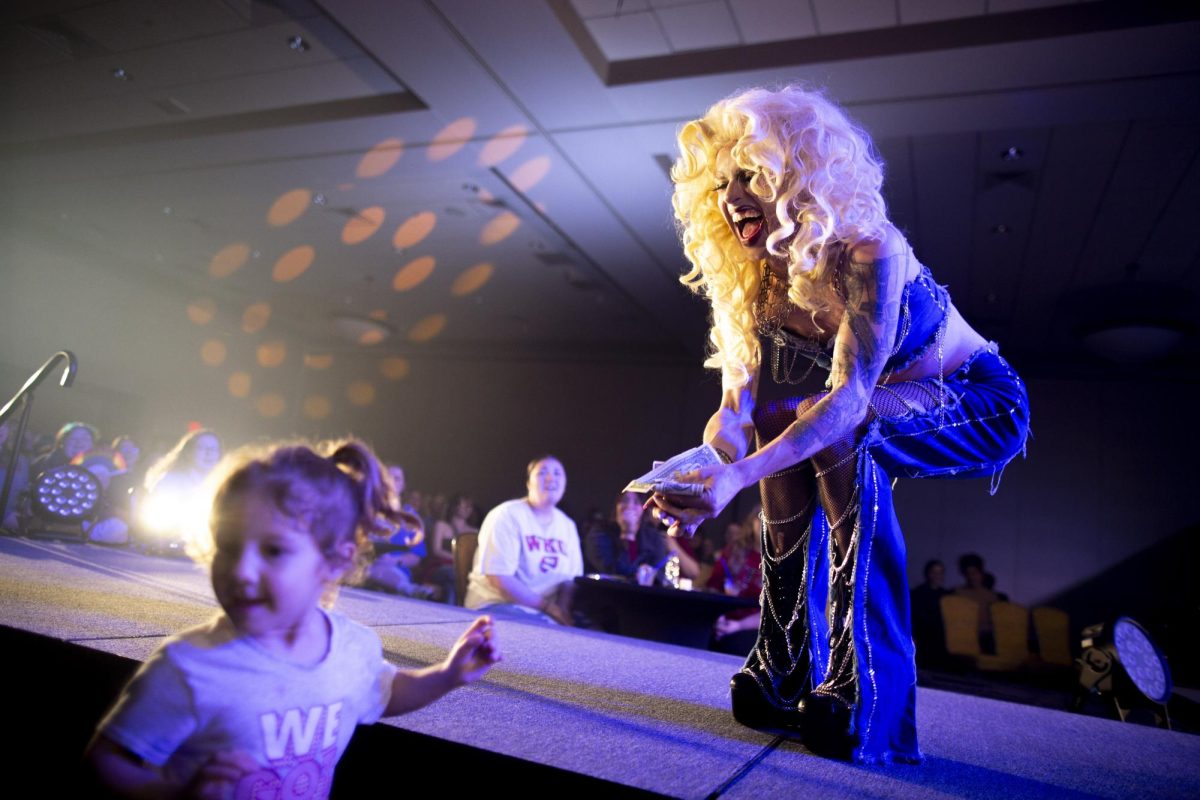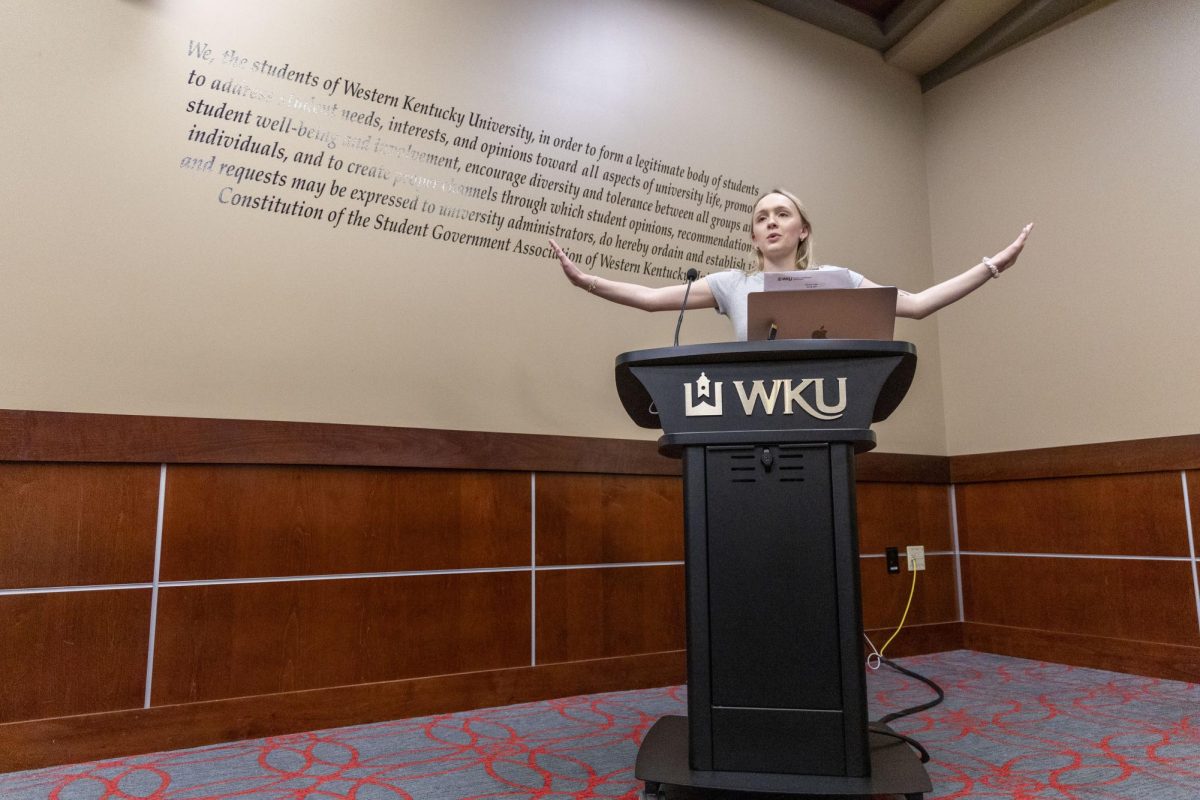Students and faculty explore culture through food
November 12, 2018
Carrots were peeled. Cabbage was chopped. Sauces were poured. Scents wafted throughout the Confucius Institute, byproducts of the culinary bustle. People began to pour in, drawn by the opportunity to explore culture on campus and the promise of free food. Professors, administrators, teaching assistants and other staff members joined students in prepping the food as each language program set up camp in a different area of the room.
Thursday night’s “Critical Food Festival” was the first of its kind for the modern languages department, linking the Arabic, Chinese and Russian programs. Faculty from each language program collaborated to organize it.
Ke Peng, director of Chinese Flagship at WKU and coordinator of the Chinese major and minor program, said getting students directly involved in the menu planning and preparation was central to the purpose of the festival.
“We are really teaching students how to cook,” Peng said. “The hands-on experience will teach students what they can do.”
Peng also said the food was more than just that.
“There is a rationale behind how we cook,” she said, explaining the medicinal uses of spicy food in the Chinese culture.
Faycal Bensassi, a Fulbright Foreign Language teaching assistant from Tunisia in his first semester in WKU’s Arabic department, said he appreciated both the social and cultural aspects of the event.
“I can taste new cultures through their food,” he said. “I’m very curious about having new knowledge about how they do their foods and how it looks like and how it tastes.”
He said he enjoyed the opportunity to meet and befriend the festival attendees while learning about Chinese and Russian cooking.
“I keep meeting interesting people and communicate with them,” Bensassi said.
For the first two hours of the event, members of the three language programs worked in groups, making traditional dishes specific to their languages’ regions to share with the festival-goers.
Hanson senior and Chinese student Hayden Sanders described the process for making hotpot, the food prepared by the Chinese students and faculty.
“[Hotpot] is pretty much a pot containing water with a broth,” Sanders said. “It cooks around 300 or 425 degrees Fahrenheit, and you essentially put thinly cut pieces of food varying from thinly cut pieces of meat to vegetables [into the pot of broth].”
The Russian program made golubtsi, a type of cabbage roll. Parviz Rahmonaliev, a sophomore from Uzbekistan whose second language is Russian, explained the steps required to prepare the dish.
“We boil the cabbage and separate the leaves, and we mix meat, rice and seasoning,” Rahmonaliev said. “We mix it all together, and basically, we put it inside the cabbage leaf and add a bit more mixes and spices and put it in the oven.”
While the golubtsiwas in the oven, students and faculty from the Arabic department worked on their dishes, tagine and harira. Lhousseine Guerwane, an Arabic professor and one of the event organizers, said both are popular Moroccan foods.
Tagine is a stew with a few core components and several variations.
“There can be any kind of meat, like fish or chicken or beef or lamb,” Guerwane said. “There’s always onion and potatoes, but some people make it with carrots or peas or zucchini. It depends on the flavor.”
Guerwane said traditionally, tagine could take five hours to make.
“It’s usually cooked in charcoal,” he said. “It cooks slowly.”
The tagine made at the festival contained lamb, potato, carrots and zucchini, and it cooked for about two hours before being ladled out into bowls for serving. Meanwhile, the harira, a tomato-based soup, simmered on the stove.
“It has a lot of tomatoes and tomato paste and tomato sauce, and it has parsley and celery leaves and again, some spices,” Guerwane said, “As it cooks, we add chickpeas, and I put in just a little bit of lentils and a little bit of rice.”
Attendees of the festival cycled from station to station to taste the different dishes. The room hummed with chatter as members of the WKU community learned about the cultural background of the offerings they sampled.
“[The festival] is so important because it gets people together working together, so we get to know our friends,” Guerwane said. “It’s an educational way to get people to meet, to have fun and to enjoy food and learn about each other.”
Features reporter Sarah Yaacoub can be reached at 270-745-6291 and sarah.yaacoub214@topper.wku.edu. Follow her on social media at @sarah.yaacoub.













